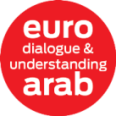Blog
I am Zeina Abdel Khalik, a feminist and human rights advocate. I have a BS in Biology (2002) and Masters in Public Health (2004) from The American University of Beirut. I have been working in the field of women’s rights and gender equality for the past 8 years. I am a development and gender expert with solid experience in programming and research in critical areas related to gender mainstreaming and promoting women’s participation in the decision-making spheres.
I came across “Advanced training course for professional gender trainers- KIT” at a critical juncture in my career. I was feeling powerless in the face of the institutional barriers and enshrined patriarchy which were impeding the attainment of any real progress in terms of gender equality in the social development institution I was working at. The course marked a new beginning for me; it enabled a better understanding of the conceptual framework of gender, gender analysis concepts, intersectionality, and feminist pedagogy.
Following the core week, I felt more confident and empowered to pursue a career path which reflects my aspirations and capabilities. I was selected to prepare Lebanon’s parallel report for Beijing +25. The newly acquired knowledge allowed me to delve into gender thematic areas from a power dynamics perspective and to prepare an analytic report that provides a situation analysis of women in Lebanon, 25 years after Beijing, in terms of discriminatory laws and structural barriers hindering gender equality and to provide a set of recommendations to accelerate progress towards gender equality and achieving social justice.
The course is a landmark in my career path. It complemented my gender expertise, strengthened my analytical skills and solidified my understanding of feminist pedagogy and its intrinsic role in gender trainings. Also, the course was very enriching in terms of experience sharing between the various participants coming from all over the globe to reflect on the struggle towards gender equality in their countries.
In light of the COVID-19 pandemic, Module 3 was deemed to take place online. The course moderators put every effort to make sure that the feminist pedagogical principles are adopted in the online training. As such, the only component that was missed in Module 3 was the face-to-face meetings. The online experience was very satisfactory and exceeded our expectations in terms of the learning objectives. Active participation was ensured through group work and panel discussions.
The COVID-19 pandemic hit Lebanon at a time of an ever-lasting political instability. The health emergency relating to COVID-19 has aggravated a months-old socio-economic crisis across the country and its impact on the economy and the population of Lebanon is drastic; GDP is expected to fall by 13.8% in 2020, with 50% of the population projected to be soon living under the poverty line.
Thus, the magnitude of the pandemic and its detrimental effects on the various levels of women’s empowerment were accentuated. These calamities have posed a setback to women’s rights and exacerbated all forms of violence against women and has hit hard women as rights holders on the social, economic, and political levels.
With the pandemic, economic and financial crisis, and one of the largest explosions of the world, women went back to the “master’s house”. Women lost their jobs, all opportunities in the job market and are nowhere to be seen around the decision-making tables. Girls are forced to leave their private schools and are fighting to reserve a place in the public schools that are in many cases not equipped and overstrained.
As such, the main themes that should be emphasized for gender equality and empowerment agenda in Lebanon are women’s economic empowerment, girls’ access to quality education, women’s participation in decision-making and adopting a holistic approach to protect women from Gender-based Violence.


